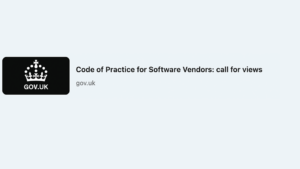
Product Management in the public sector: Why government is taking the product approach
Product Management is playing a growing part in how the public sector delivers services to users. It’s seen as a discipline that increases the chances of successfully implementing digital government products — maximising benefits for users and the organisation.
Historically organisations across all sectors, not just in government, have struggled to get that balance right.
For example, how many times have you seen:
- a solution that doesn’t address the real problem for the users?
- a product roll-out stall due to some unforeseen organisational blocker?
- something that’s too complex to maintain, support or improve?
Understanding user, business & tech
In our experience these outcomes are typically the result of neglecting one of the following areas:
- your users’ needs and their motivations
- what your organisation is trying to achieve and any inherent constraints (legislation, policy, security, reputational risks, operating model, budget etc)
- what’s technologically feasible and sustainable
Ignoring one or more of the three can be an oversight at the start of a project or it can happen gradually as delivery hots up. And that’s perfectly understandable — it’s natural our attention is drawn to an area that quickly seems to offer the most promise or one that really worries us.
Product management helps break down potential silos and allows evidence-based conversations giving each area — organisation, user, technology — the prominence it deserves.
It harnesses both the enthusiasm to deliver products that really excites your users, whilst not ignoring your intuitive understanding of risks. This balance means you won’t rush headlong in the wrong direction or hesitate in taking the first step because you angst about ill-defined, seemingly insurmountable problems.
How the public sector got here
A decade ago, the public sector went on a big drive to go online. It was assumed that it would a) be good for the user and b) save money for the organisation.
But the uptake of online services wasn’t always great. And that led to the realisation that improvements could be made by better understanding user needs. Although this created a noticeable improvement, frequently these needs were only explored in the context of a single interaction and not the whole journey.
Meanwhile, the increasing use of custom-built or extended open source solutions allowed concepts to be piloted quicker, offering huge benefits in feedback and learning. However, the effort required to address scalability challenges wasn’t always considered early enough, nor factored into release plans and roadmaps.
This created challenges in roll-out, security and support, limiting the ability to improve and continually consider if products were meeting organisational and user needs.
Product management — the balanced approach
The embracing of product management has been a natural progression to find that balance between the user, business and technology.
It helps build products that enable mutually beneficial relationships between your users and organisation, but crucially in a sustainable way. You can only do this when you understand, equally, the organisational vision and the relevant goals and motivations of users.
A key indicator of this is being able to clearly articulate the problems you want to solve, your goals, and how you will measure success. We’ll talk in future blogs about how you can do this in practice.
In our next blog, we’ll look at how product management benefits government organisations.
If you would like to talk to Steven and find out more about Product Management and how it can help your organisation then get in touch
Related content
-

My first Regional Scrum Gathering in Stockholm – key takeaways
Published on: 30 October, 2024 -

How product management improves public sector digital services
Published on: 26 September, 2024 -

Bringing an SME perspective to government’s Code of Practice for Software Vendors
Published on: 4 July, 2024 -

Lightning talks: Being a ‘Product Manager Mum’ – Service Design in Government
Published on: 24 August, 2023
